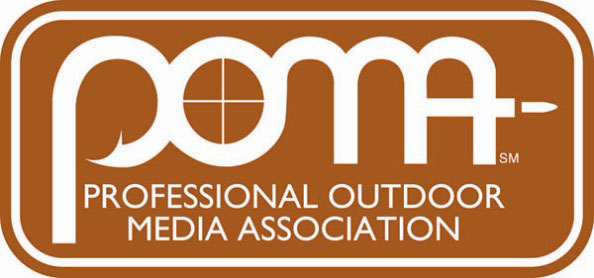Ken Clay of Winslow named Shikar-Safari Wildlife Officer of the Year for Arizona

On just about any frosty morning in autumn, you’ll find Wildlife Manager Ken Clay III bunking at the Vincent Ranch Wildlife Area so he can get up at O-dark-thirty and patrol the big game hunts in the Mogollon Rim area.
Ken has old-school dedication. His enthusiasm is contagious. He makes those around him better. Those are just some of the reasons Ken is a top wildlife manager training officer.
Those who work with Ken Clay, the people he has helped and probably even those whom he has cited over the years will not find it surprising that he has been named the 2010 Shikar-Safari wildlife manager of the year.
Ken is both carrying on a family tradition, and maybe even starting a new one. His dad, Ken Clay II, is a retired Arizona Game and Fish wildlife manager. Ken has Game Management Unit 4A. So did his dad.
Ken followed in his dad’s footsteps in more ways than one. In 2005, he was named the department’s Game and Fish Wildlife Manager of the year, just like his dad before him.
But he is the first in the family to receive this latest prestigious award.
Ken has been with the Game and Fish Department for 15 years. He graduated from the University of Arizona in 1994 with a B.S in Wildlife and Fisheries Science, and was hired by Game and Fish that same year.
His first assignment was the Lake Havasu District, where he quickly excelled as a watercraft officer and became an expert at detecting those operating watercraft while under the influence. Then in 2000, he transferred to Unit 4A stretching south of Winslow and encompassing Chevelon and Bear Canyon Lakes – this district receives some of the most intense outdoor recreation use in the state.
“Ken’s dedication and enthusiasm are high and his activity level is contagious to other officers. He makes those around him better,” said his field supervisor, Bob Birkeland.
Ken has developed a good informant base in the Winslow area and has made several high profile cases for the department.
In January 2009, Ken started the first winter archery deer hunt for Unit 4 and even initiated a special deer decoy operation for the archery hunt. It proved immensely successful. On the first day, an individual used his .223 rifle to shoot the deer decoy during the archery-only season. The operation also nabbed a “bad guy” with no hunting license or permit who saw the decoy, stopped his truck, and stalked the fake deer with pistol in hand.
Gotchya.
On another occasion, Ken organized a sector patrol at Bear Canyon Lake that resulted in five wildlife officers issuing 20 fishing violations. Be sure you have a valid fishing license and trout stamp when fishing any of Ken’s waters.
Ken is renowned for his night patrols using night vision goggles to nab poachers and other wildlife violators. But that’s not all. He is also very involved in improving his unit’s wildlife habitat.
Working with local ranches, Ken coordinated the High Point Well project, which entailed 40-plus miles of pipeline and 32 drinkers. “His persistence and coordination has led to 29,000 acres of grassland restorations totaling more than $1.5 million dollars,” Birkeland said.
That wasn’t too surprising – Ken had drafted the first district habitat management plan encompassing 482,000 acres that even detailed 30 years of precipitation data, vegetation mapping, land use identification, habitat condition and trends, wildlife occurrence, and potential land partnership opportunities.
He set the bar high for others to follow.
Ken knows his district and uses science to manage the wildlife there. His herbaceous monitoring data, especially on elk, are a key ingredient in setting hunt permit levels for the district. “Ken is a regional leader and expert in forage monitoring,” Birkeland said.
Ken also thought “outside the box” and proposed over-the-counter elk permits for parts of Unit 4A/B a few years ago.
“This was a bold step in a long process of managing elk in some Limited Elk Zones. This could not have happened had it not been for Ken’s vision to document processes over many years. It was almost an evolutionary approach where he proved that our traditional methods were not working and our landowners were not happy,” Birkeland said.
The over-the-counter permits resulted in more hunters having an opportunity to go afield, with a side benefit of also improving landowner relations – a farsighted win-win solution.
That’s not all.
Ken is a hunter education instructor and a Little League coach. He teaches classes annually on the Hopi Reservation. He is currently working on getting the Archery in the Schools program established in the Winslow Schools. And in his spare time, he helps horse-packing materials into remote sites for the Apache trout recovery – sites that are far removed from his district.
Each year, the Shikar-Safari Club International honors one wildlife officer from each of the 50 states for service over the previous year that demonstrated outstanding performance and achievement. The organization was founded in 1952 for the purpose of advancing knowledge about wildlife.
Well done and thanks to this officer for his service, along with all of our Game and Fish Officers ~DesertRat











